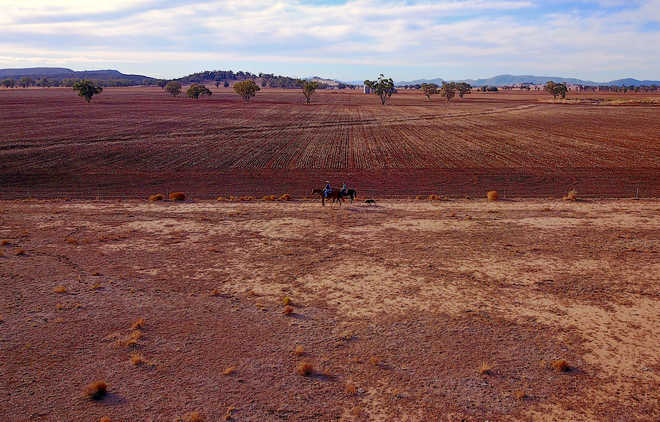
Photo for representational purpose only. Reuters file
LOS ANGELES: The Neo-Assyrian Empire—the largest civilisations between 800 and 600 BCE centred in northern Iraq and extending to Egypt—may have collapsed due to a 60-year, climate-related megadrought, according to a study.
The researchers, including Indian origin scientist Ashish Sinha at California State University in the US, said the Neo-Assyrian Empire was by far the largest empire in the region up to that time, controlling much of the territory from the Persian Gulf to modern day Cyprus.
The study, published in the journal Science Advances, noted that climate-related factors contributed to political instability, civil wars, and invasion by outside armies, that ultimately led to the civilisation’s collapse.
The researchers said the Neo-Assyrian Empire experienced a series of megadroughts that likely triggered its collapse by weakening agriculture and amplifying conflict.
“The Tigris River is so deeply cut into the surrounding soil that you can’t do large scale-irrigation there. That is why rainfall was so crucial to their lives. The Assyrians were much more vulnerable to the impacts of prolonged and severe drought than people downriver,” said study co-author Adam W. Schneider from the University of Colorado at Boulder in the US.
The researchers analysed fossilised drip water in the Kuna Ba Cave in northern Iraq.
They assessed the quantities of radioactive isotopes, or variants, of oxygen and carbon atoms present across different layers of the cave formations to infer historical time based changes in precipitation.
The researchers said the oxygen in rainwater were of two main varieties—heavy and light.
The ratio of heavy to light types of oxygen isotopes is extremely sensitive to variations in precipitation and temperature, they explained.
Using this ratio pertaining to different layers of the fossil samples in the caves, the researchers were able to infer a time based change in precipitation.
“Because the isotope record went all the way up to 2007 CE, we were able to correlate the stable carbon and oxygen isotope ratios with modern instrumental climate information from the region. This has enabled us to compare the modern isotope data with ancient layers,” Schneider explained.
The researchers found that the megadroughts that affected the empire started decades earlier than previously thought, and also discovered that the region experienced one of the wettest times in the period prior to the megadrought in a span of nearly 3800 years.
The team then compared the findings with archaeological and cuneiform records, and documented the first paleoclimate data for the megadrought which affected the empire’s heartland at the time of its collapse.
The researchers also added that climate related factors have contributed to the collapse of several empires in history.
“French Revolution is one example. In the two years prior to the French Revolution, poor weather led to a series of bad harvests, which alongside other factors helped to cause the price of bread to skyrocket, especially in Paris,” Schneider said.
He added that the US Dust Bowl in the 1930s saw a mass migration triggered by both climatic and economic factors during the Great Depression, driving the development and agriculture in southern California.
“The question is not: Did climate have an impact? It’s: How, why, and how important was climate alongside the other factors?” Schneider said. PTI



























